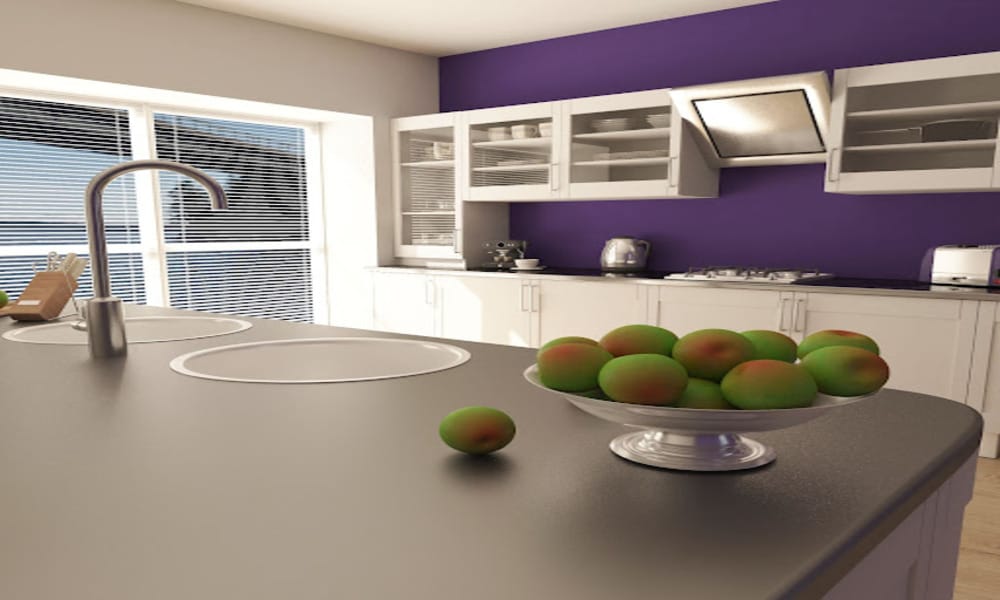In recent years, the kitchen has undergone a remarkable transformation. What was once a purely functional space for cooking and cleaning has now become the heart of the home, a social hub where families and friends gather to eat, drink, and spend quality time together. This evolution of kitchen design has been driven by a combination of societal changes and advancements in technology and interior design.
The Functional Kitchen
In the past, kitchens were designed solely with functionality in mind. They were often small, cramped spaces tucked away at the back of the house. The focus was on efficiency, with everything within easy reach to facilitate meal preparation and cleaning. The design was typically utilitarian, with basic appliances and minimal storage options.
During this time, the kitchen was primarily a private space, hidden from view and used solely for cooking. It was not a place for socializing or entertaining guests. The dining area, on the other hand, was a separate room where meals were enjoyed with family and friends.
The Rise of Open-Plan Living
In the late 20th century, there was a shift towards open-plan living spaces, and the kitchen began to merge with the dining and living areas. Walls were knocked down, creating a seamless flow between different parts of the home. This change in layout allowed for more interaction and communication between family members and guests.
The open-plan kitchen introduced the concept of the kitchen island, a multifunctional space that serves as a cooking area, a food preparation surface, and a gathering spot for socializing. It became a focal point in the kitchen, providing a place for people to gather, chat, and even lend a helping hand during meal preparation.
The Social Kitchen
In the 21st century, the kitchen has become a social space in its own right. With the rise of cooking shows, food blogs, and social media platforms dedicated to food, people have developed a newfound passion for cooking and entertaining. As a result, kitchen design has adapted to accommodate this growing trend.
Modern kitchens now feature spacious layouts with ample seating options, such as breakfast bars or cozy nooks. They are equipped with state-of-the-art appliances and technology, making cooking easier and more enjoyable. The design focuses on creating a welcoming and comfortable atmosphere that encourages social interaction.
Furthermore, the kitchen has become a place for hosting parties and gatherings. It is no longer uncommon to see guests mingling with the host while they prepare a meal, enjoying a glass of wine or a snack. The kitchen has truly become the social epicenter of the home, where memories are made and shared.
The Future of Kitchen Design
As technology continues to advance, kitchen design is likely to evolve even further. Smart appliances, integrated systems, and sustainable materials are becoming increasingly popular. The focus on functionality and aesthetics will remain, but with an emphasis on energy efficiency and eco-friendly design.
Additionally, the COVID-19 pandemic has had a significant impact on kitchen design. The need for cleanliness and hygiene has become paramount, leading to the adoption of touchless faucets, antibacterial surfaces, and improved ventilation systems.
The evolution of kitchen design from functional to social spaces reflects the changing lifestyles and values of modern society. The kitchen has transitioned from a hidden, utilitarian space to a central gathering place for family and friends. It has become a symbol of togetherness, where the joy of cooking and sharing meals is celebrated. With the continuous advancement of technology and design, the kitchen of the future is sure to be a harmonious blend of function, style, and social connectivity.
Related posts
Recent Posts
Why “Standard Size” Windows Don’t Exist? Window Replacement Experts in Athens, AL Get the Perfect Fit
When it comes to home renovations, windows play a pivotal role in both aesthetics and functionality. Many homeowners in Athens, AL, might assume that window sizes are standardized, but this is a common misconception. In reality, the concept of “standard” window sizes is more myth…
Why do regular AC tune-ups extend the life of your cooling system?
Air conditioning systems are substantial investments, typically costing thousands of dollars to replace. Without regular maintenance, these systems deteriorate faster than necessary. Depending on the manufacturer, neglected HVAC systems can lose up to 5% of their efficiency yearly without proper maintenance. This decline happens gradually,…



